25 Jun 2015
Preserving soil biodiversity - 3 innovative solutions by Vitagora members
 Soil, and the diverse microorganisms that it contains, supply a number of services to the ecosystem: water filtration, the regulation of above-ground biodiversity, climatic regulation and air quality…
Soil, and the diverse microorganisms that it contains, supply a number of services to the ecosystem: water filtration, the regulation of above-ground biodiversity, climatic regulation and air quality…
Today, precision agriculture techniques are being developed to preserve our soil’s biodiversity, including the use of high-tech imaging tools and high-performance biosolutions to strengthen natural plant defenses. Genosol, a one-of-a-kind tool for characterising and preserving microbial biodiversity, and two R&D projects – Damav and Iris+ - are examples of the actions of Vitagora members taking up the challenge of agroecology.
GENOSOL, a technical and logistical tool for soil microbiology
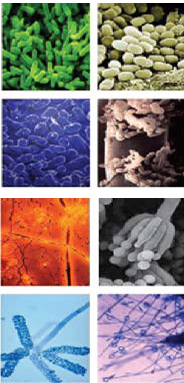 Used more efficienty, the extraordinary microbial biodiversity contained in our soils could lead to the development of a more healthy and sustainable agriculture. Samuel Dequiedt is the technician in charge of the Genosol platform and fully supports this idea.
Used more efficienty, the extraordinary microbial biodiversity contained in our soils could lead to the development of a more healthy and sustainable agriculture. Samuel Dequiedt is the technician in charge of the Genosol platform and fully supports this idea.
Genosol is a swiss army knife of a platform. It is all at once a conservatory of French soil samples, a high-speed technical platform for the standardization of molecular tools, and a data base for for managing all the samples and data and developing a reference base for soil biodiversity. Launched in 2008, it has been hailed as a strategic tool for environmental microbiology and is the only one of its kind in the world.
The current problem of soil degradation shines a light on why this tool is needed. “We are losing the equivalent of a French “département” every 7 years,” explains Samuel Dequiedt. 10,500 samples have been processed since its launch and the platform receives around 1,500 new samples per year.
As a part of the AgroEcology research unit based in Dijon, Genosol is frequently used by scientists and industry associations to develop new analytical tools to serve their needs. “We are called upon to evaluate current practices as well as soil microbiological quality or the impact of human activity on soil quality. This is of great importance to our profession,” he observes.
Genosol has now developed a map of how microbial biomass is spread throughout France and can show fluctuations over the years. This information promises to be of great importance for moving agricultural practices towards greater sustainability and respect for the environment.
Grape vine health: Damav develops a drone-sensor pairing
In 2013, the BIVB, Burgundy’s wine industry association, tasked the scientist Frédéric Cointault in Dijon with leading a study with two companies, the neuronal processor specialist Yumain (the former Global Sensing Technologies), and the aerial robotics designer Novadem.
“We wanted to find out if it is possible to locate bacterial infections of Flavescence dorée (Candidatus Phytoplasma vitis) in vineyards with the help of imaging tools,” recalls Jean-Philipe Gervais, technical director of the BIVB.
This ground-breaking test was successful, the results showing “a strong correlation between the zones that our imaging tools identified as infected and the real infected zones,” explains Frédéric Cointault.
This lead quickly to the development of an ambitious R&D project, called Damav, bringing together a number of industry leaders including Airbus Defence and Space, Burgundy and Bordeaux wine growers as well as Novadem and GST. “We are working on a new high-res multispectral sensor for specific processing,” explains Frédéric Cointault. This sensor could soon be able to detect a number of vine diseases as well as being used for other crops or in horticulture. The goal is to develop a prototype in 2016 in order to test it during the flavescence dorée “window” from August to September.
A first campaign of tests will then take place in 2017 using the drone-sensor pairing that Jean-Philippe Gervais now considers a game-changing tool that will quickly be adopted by the industry. “Its initial use will be on simple disease detection. The speed and efficiency of this tool makes it adaptable for a large number of applications.”
Natural plant defenses: Iris+ sets its sights on tech and biostimulants
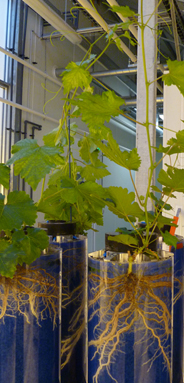 Laboratoires Goëmar has made sustainable agriculture its raison d’être since the beginning of the 1970s. This French company develops biosolutions in the form of biostimulants and bio-control products that stimulate, feed and protect crops while preserving the environment.
Laboratoires Goëmar has made sustainable agriculture its raison d’être since the beginning of the 1970s. This French company develops biosolutions in the form of biostimulants and bio-control products that stimulate, feed and protect crops while preserving the environment.
Launched in February 2014, the Iris+ R&D project is lead by Goëmar and aims to optimize the range of biostimulants. “The use of specific static or on-board imaging and spectroscopics tools is allowing us to predict the right moment to apply our products with the highest level of precision and to offer users the best results,” explains Jean-Marie Joubert, R&D director for Goëmar.
A search for greater efficiency has also lead the project team to examine pulverization technologies which could be used for grape vine growing, but also other crops such as wheat. “This project emerged from the research teams at the INRA centre in Dijon, with whom we work closely, and is strategic for our company’s development,” he continues. “We set up the project with the help from the Vitagora’s team who continue to work closely with us on managing the project.”
In partnership with JFD & Co
Find out more
Are you interested in Vitagora's actions or network around the topic of Agroecology, AgTech or precision agriculture?
Contact Anne-Céline Renaud, Vitagora's International outreach officer to find out more:
anne-celine.renaud@vitagora.com
Tel.: +33 (0)3 80 78 77 41, Mob.: +33 (0)6 65 14 80 95




 Home
Home

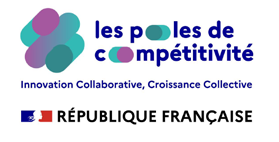

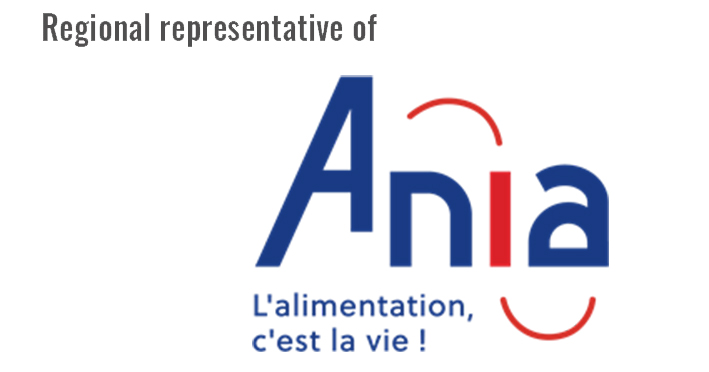

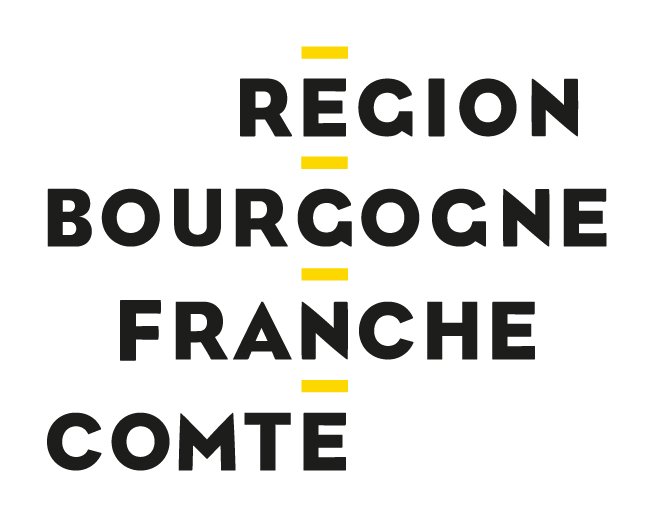
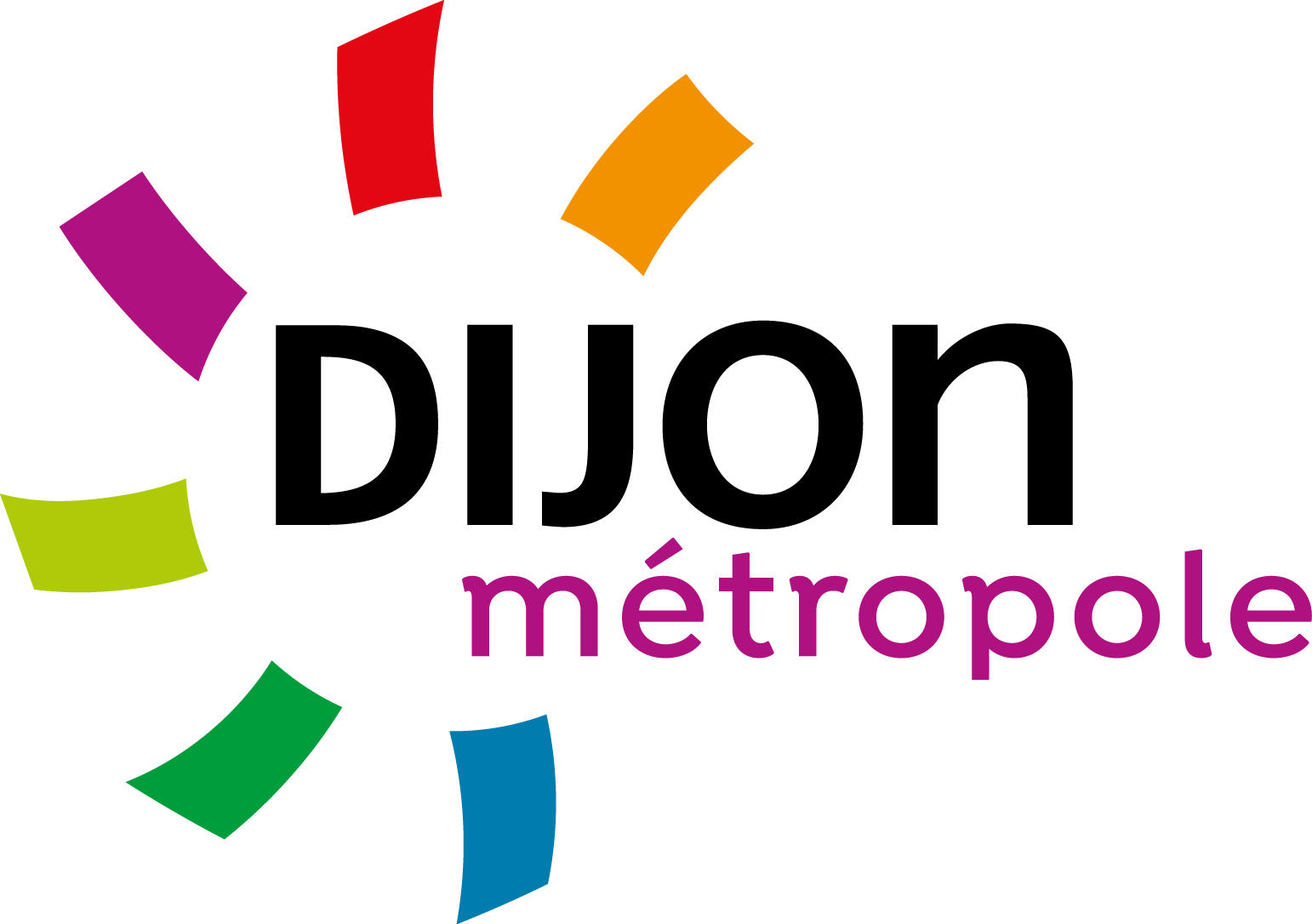









Share your opinion